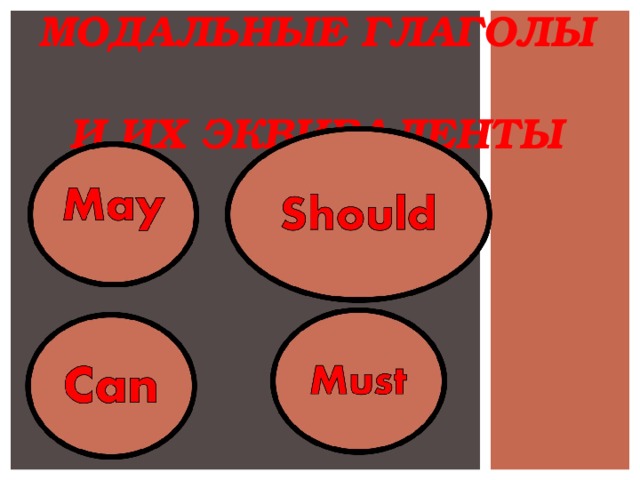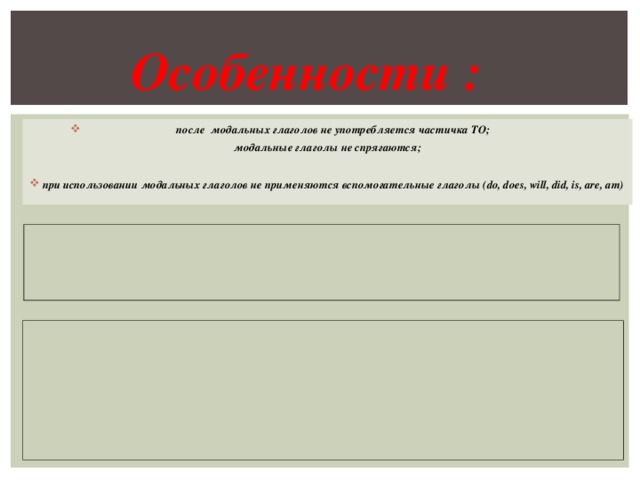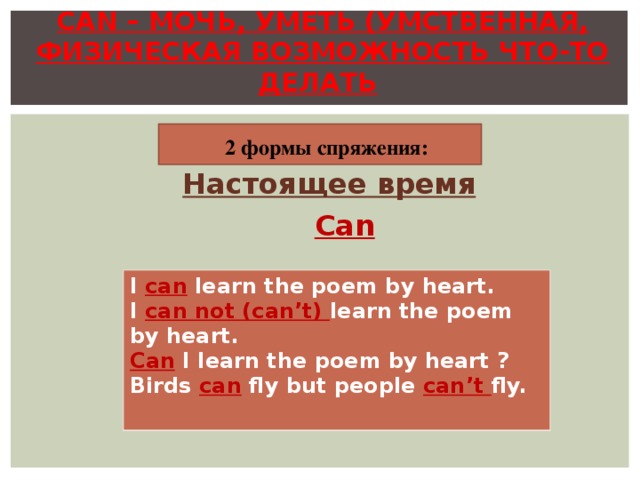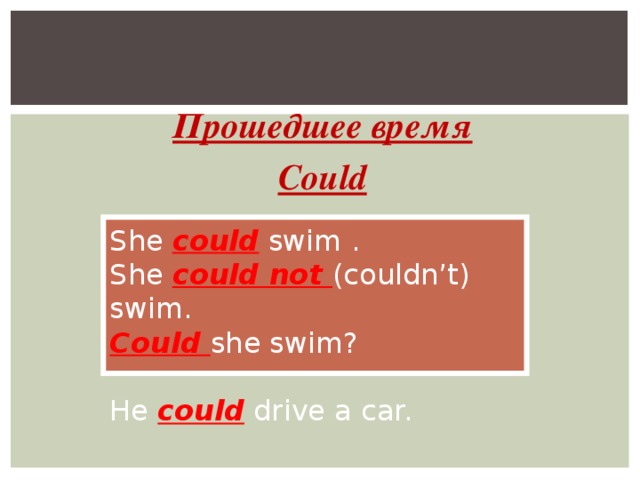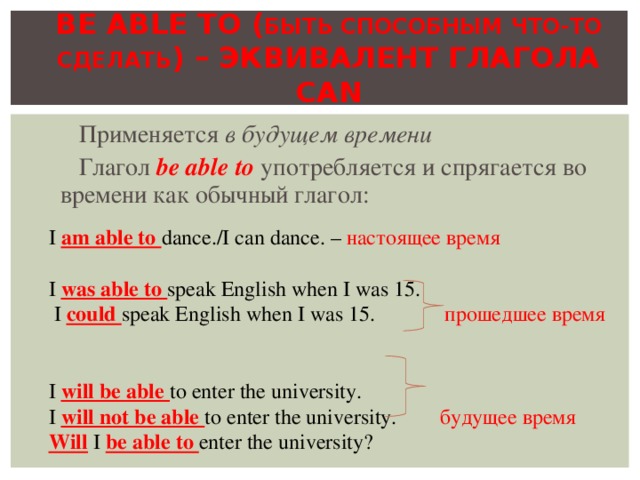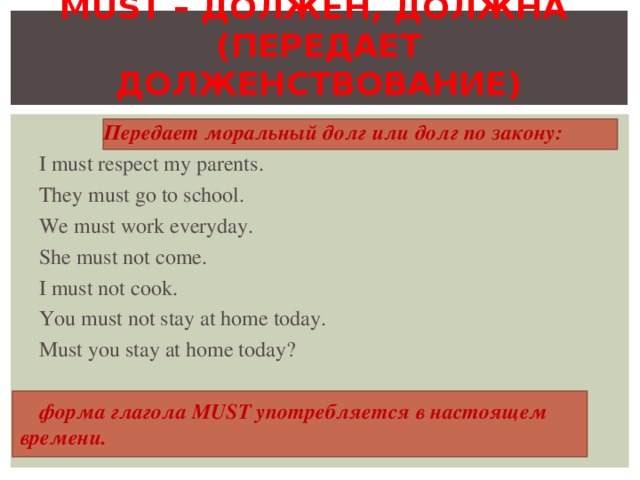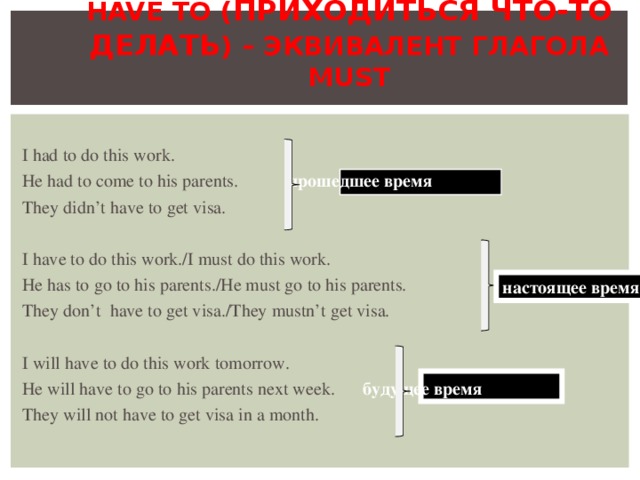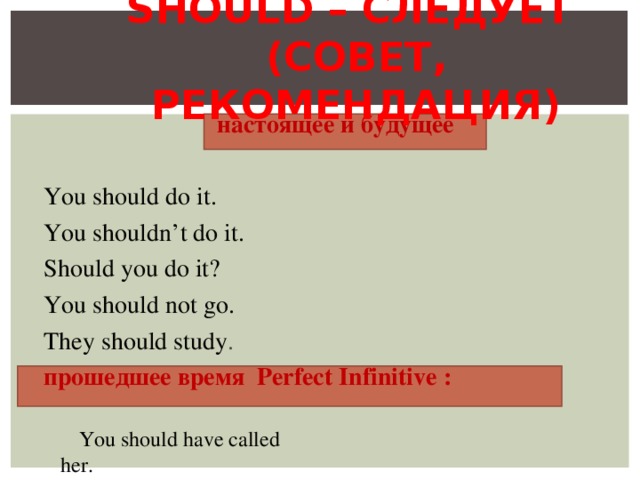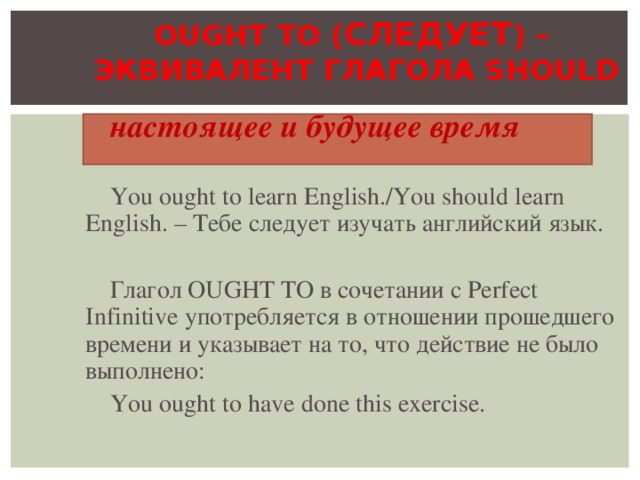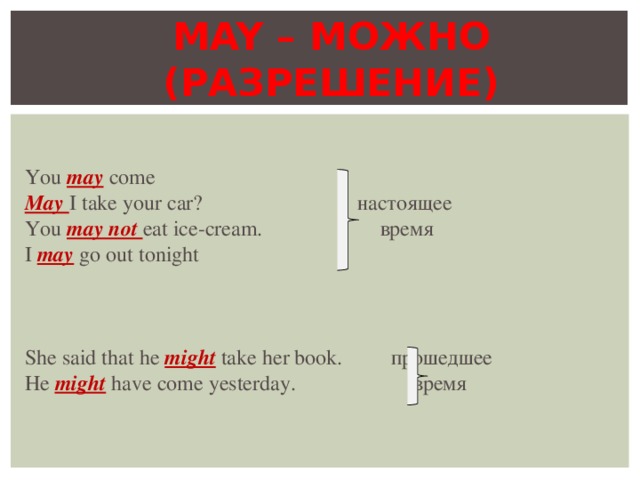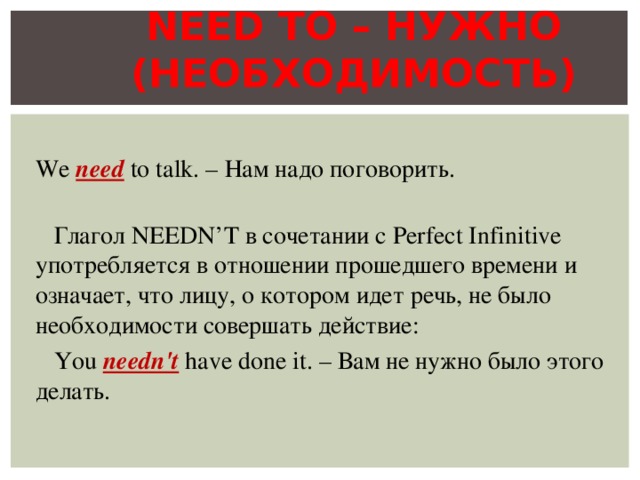Презентация по английскому языку по тему "Модальные глаголы"
Создайте Ваш сайт учителя Видеоуроки Олимпиады Вебинары для учителей
Модальные глаголы английского языка
Вы уже знаете о суперспособностях современного учителя?
Тратить минимум сил на подготовку и проведение уроков.
Быстро и объективно проверять знания учащихся.
Сделать изучение нового материала максимально понятным.
Избавить себя от подбора заданий и их проверки после уроков.
Наладить дисциплину на своих уроках.
Получить возможность работать творчески.
Просмотр содержимого документа
«Модальные глаголы английского языка»
Полезное для учителя
Распродажа видеоуроков!
1940 руб.
2770 руб.
1860 руб.
2660 руб.
1970 руб.
2820 руб.
1970 руб.
2820 руб.
ПОЛУЧИТЕ СВИДЕТЕЛЬСТВО МГНОВЕННО
* Свидетельство о публикации выдается БЕСПЛАТНО, СРАЗУ же после добавления Вами Вашей работы на сайт
Удобный поиск материалов для учителей
Проверка свидетельства
